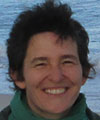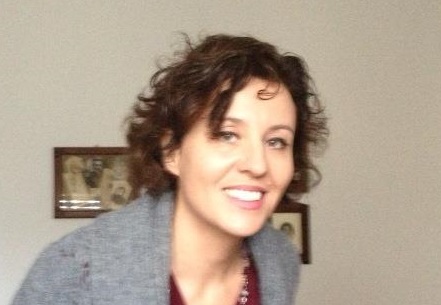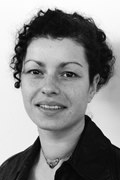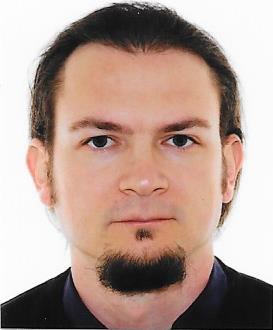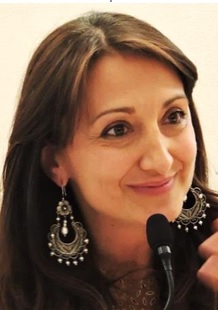Studying at the University of Verona
Here you can find information on the organisational aspects of the Programme, lecture timetables, learning activities and useful contact details for your time at the University, from enrolment to graduation.
Academic calendar
The academic calendar shows the deadlines and scheduled events that are relevant to students, teaching and technical-administrative staff of the University. Public holidays and University closures are also indicated. The academic year normally begins on 1 October each year and ends on 30 September of the following year.
Course calendar
The Academic Calendar sets out the degree programme lecture and exam timetables, as well as the relevant university closure dates..
| Period | From | To |
|---|---|---|
| Sem. 1A | Sep 26, 2022 | Nov 5, 2022 |
| Sem. 1B | Nov 14, 2022 | Dec 23, 2022 |
| Sem. 2A | Feb 13, 2023 | Mar 30, 2023 |
| Sem. 2B | Apr 11, 2023 | May 27, 2023 |
| Session | From | To |
|---|---|---|
| Sessione Invernale | Jan 9, 2023 | Feb 11, 2023 |
| Sessione Estiva | Jun 5, 2023 | Jul 22, 2023 |
| Sessione Autunnale | Aug 28, 2023 | Nov 23, 2023 |
| Sessione straordinaria invernale | Jan 8, 2024 | Feb 17, 2024 |
| Session | From | To |
|---|---|---|
| Sessione Estiva | Jul 10, 2023 | Jul 15, 2023 |
| Sessione Autunnale | Nov 6, 2023 | Nov 11, 2023 |
| Sessione invernale | Apr 2, 2024 | Apr 8, 2024 |
| Period | From | To |
|---|---|---|
| Festa di Ognissanti | Nov 1, 2022 | Nov 1, 2022 |
| Festività Della Immacolata Concezione | Dec 8, 2022 | Dec 8, 2022 |
| Vacanze natalizie | Dec 24, 2022 | Jan 8, 2023 |
| Vacanze di Pasqua | Apr 7, 2023 | Apr 10, 2023 |
| Festa della Liberazione | Apr 25, 2023 | Apr 25, 2023 |
| Festa del lavoro | May 1, 2023 | May 1, 2023 |
| Festa del Santo Patrono | May 21, 2023 | May 21, 2023 |
| Festa della Repubblica | Jun 2, 2023 | Jun 2, 2023 |
| Chiusura estiva | Aug 14, 2023 | Aug 19, 2023 |
Exam calendar
Exam dates and rounds are managed by the relevant Humanistic Studies Teaching and Student Services Unit.
To view all the exam sessions available, please use the Exam dashboard on ESSE3.
If you forgot your login details or have problems logging in, please contact the relevant IT HelpDesk, or check the login details recovery web page.
Should you have any doubts or questions, please check the Enrollment FAQs
Academic staff
 carlo.callegaro@univr.it
carlo.callegaro@univr.it
 laura.fontecedro@univr.it
laura.fontecedro@univr.it
 giacomo.mormino@univr.it
giacomo.mormino@univr.it
 piergiorgio.reggio@univr.it
piergiorgio.reggio@univr.it
Study Plan
The Study Plan includes all modules, teaching and learning activities that each student will need to undertake during their time at the University.
Please select your Study Plan based on your enrollment year.
1° Year
| Modules | Credits | TAF | SSD |
|---|
2° Year activated in the A.Y. 2023/2024
| Modules | Credits | TAF | SSD |
|---|
| Modules | Credits | TAF | SSD |
|---|
| Modules | Credits | TAF | SSD |
|---|
| Modules | Credits | TAF | SSD |
|---|
Legend | Type of training activity (TTA)
TAF (Type of Educational Activity) All courses and activities are classified into different types of educational activities, indicated by a letter.
Group processes and diversity management (2023/2024)
Teaching code
4S007375
Teacher
Coordinator
Credits
9
Language
Italian
Scientific Disciplinary Sector (SSD)
M-PSI/05 - SOCIAL PSYCHOLOGY
Period
Sem. 1A, Sem. 1B
Courses Single
Authorized
Learning objectives
GENERAL OBJECTIVES:
- Develop an integrated system of knowledge regarding relational and group processes in organizational and social contexts.
- Apply knowledge regarding relational and group processes in organizational and social contexts.
SPECIFIC OBJECTIVES:
The course focuses on group processes in organizational contexts. It will examine group processes and intergroup relations, with particular attention to topics such as group formation and cohesion, inclusion and identity, group decision-making and productivity, intergroup relationships and conflict, effects of belonging to majority and minority groups, and diversity management. The course aims to develop critical reflection, analysis, and interpretation skills of group dynamics, especially those that occur in organizational contexts. Students will acquire skills such as group observation and understanding of their dynamics, mastery of the main theories of groups, knowledge of the most important approaches to the study of group processes, and the ability to manage relationships between minority and majority group members. The teaching aims to achieve the following specific learning objectives:
- develop an integrated system of knowledge regarding group processes in social and organizational contexts;
- develop skills to manage complex organizational processes with particular reference to diversity management;
- develop skills for planning and evaluating interventions aimed at developing harmonious relationships in organizational contexts.
Prerequisites and basic notions
Social Psychology (bachelor) is recommended.
Program
The course will be held in Italian and will cover the following topics:
-group formation
-social categorization and social identity
-cohesion and inclusion
-social influence and conformity
-obedience and power
-leadership
-group decision making
-group productivity
-intergroup relations and conflict
-majority-minority relations within organizations
-stereotype threat in the workplace
-diversity in social and organizational contexts
-diversity management
-diversity training
Readings:
1a. Forsyth, D. R. (2022). Psicologia dei gruppi (7ma Ed.). Edra. Chapts: 1,2,3,6,7,8,9,10,12,13,14.
Alternatively:
1b. Forsyth, D. R. (2019). Group dynamics (7th Ed.). Cengage Learning. Chapts: 1,2,3,6,7,8,9,10,12,13,14.
2. Ellemers, N. & Haslam, S. A. (2019). La teoria dell’identità sociale, in Van Lange, P. A. M., Kruglanski, A. W., & Higgins, E. T., Psicologia sociale: Teorie sui processi psicologici, intraindividuali, interpersonali e intergruppi (pp.187-202). Traduzione italiana a cura di Pagliaro, S., Sacchi, S., & Vezzali, L. Milano: Edra.
3. Turner, J. C. & Reynolds, K. J. (2019). La teoria della categorizzazione di sé, in Van Lange, P. A. M., Kruglanski, A. W., & Higgins, E. T., Psicologia sociale: Teorie sui processi psicologici, intraindividuali, interpersonali e intergruppi (pp. 203-216). Traduzione italiana a cura di Pagliaro, S., Sacchi, S., & Vezzali, L. Milano: Edra.
4. Pratto, F., Sidanius, J., & Levin, S. (2006). Social dominance theory and the dynamics of intergroup relations: Taking stock and looking forward. European Review of Social Psychology, 17, 271–320.
5. John F. Dovidio , Samuel L. Gaertner & Tamar Saguy (2007) Another view of “we”: Majority and minority group perspectives on a common ingroup identity, European Review of Social Psychology, 18:1, 296-330.
6. Roberson L. & Kulik C. T. (2007). Stereotype Threat at Work. Academy of Management Perspectives, 21, 24-40.
7. Casad, B,J. & Bryant, W.J. (2016). Addressing Stereotype Threat is Critical to Diversity and Inclusion in Organizational Psychology. Front. Psychol.7:8. doi:10.3389/fpsyg.2016.00008
8. Anand, R., & Winters, M. F. (2008). A Retrospective View of Corporate Diversity Training from 1964 to the Present. Academy of Management Learning & Education, 7, 356-372
9. O’Donovan, D. (2017). Inclusion: Diversity Management 2.0. In C. Machado, & J. P. Davim, Managing Organizational Diversity: Trends and Challenges in Management and Engineering. Springer.
Chapters and journal articles will be available on the moodle platform. Non attending students who might find it difficult to study in English are invited use power points on moodle as supplementary materials (not substitutes).
Bibliography
Didactic methods
Lectures and in-class assignments aimed at developing students’ skills of group observation and analysis, understanding of group processes, management of diversity-related processes. Attending students will have the opportunity to participate into a project work concerning diversity management in organizational contexts.
Lectures will be in presence. Materials such as power points and texts of in-class assignments will be made available in moodle for students that will be unable to attend some lectures.
Learning assessment procedures
For attending students, the exam will consist of a work-project (optional) and written exam test; for non attending students, the exam will consist of written exam test. The content and modes of completion of the work-project will be agreed upon by the lecturer and (attending) students. The written exam test (for both attending and non attending students) consists of 3 open-ended questions. Each answer will be awarded up to 10 points/marks.
Evaluation criteria
Knowledge of theoretical constructs will be assessed, as well as the ability to understand, analyze and communicate and interpret social and organizational behaviors in the light of the theories and concepts covered by the study program.
Participation to the work-project (optional) will be awarded up to 3 points which will be summed to the marks of the written exam test.
Criteria for the composition of the final grade
For attending students participating in the project work, the final grade will consist of the grade/mark of the written exam test plus the points obtained in the work-project. For all other students, the final grade/mark will correspond to the grade/mark obtained in the written exam test.
Exam language
Italiano
Type D and Type F activities
I 9 crediti liberi a scelta dello studente (ambito “D”) hanno lo scopo di offrire allo studente la possibilità di personalizzare il proprio percorso formativo permettendo di approfondire uno o più argomenti di particolare interesse legati al proprio percorso accademico.
Per garantire questo fine, si invitano gli studenti a rispettare le seguenti indicazioni per il completamento di tale ambito:
- almeno un’attività formativa erogata come esame universitario (con relativo voto in trentesimi) selezionato tra le attività del proprio piano non seguite in precedenza o fra gli insegnamenti dei CdLM del Dipartimento di Scienze Umane;
- massimo 6 cfu relativi a competenze linguistiche (oltre a quelli previsti dal PdS);
- massimo 6 cfu relativi a competenze informatiche (oltre a quelli previsti dal PdS);
- massimo 4 cfu di tirocinio, (oltre a quelli previsti dal PdS);
- massimo 6 cfu di attività laboratoriale/esercitazioni (compresi quelli previsti nei PdS per l’ambito) di regola viene riconosciuto 1 cfu ogni 25 ore di attività;
- massimo 6 cfu di attività seminariale/convegni/cicli di incontri/formative in genere (sia accreditata dal Dipartimento di Scienze Umane che extrauniversitaria) – di regola viene riconosciuto 1 cfu ogni 8 ore di partecipazione e/o 2 giornate salvo diversamente deliberato;
- non vengono valutate attività svolte in Erasmus non inserite nei Learning Agreement.
Altre informazioni sono reperibili nella Guida per i crediti liberi che è possibile trovare quì.
COMPETENZE TRASVERSALI
Scopri i percorsi formativi promossi dal Teaching and learning centre dell'Ateneo, destinati agli studenti iscritti ai corsi di laurea, volti alla promozione delle competenze trasversali:
https://talc.univr.it/it/competenze-trasversali
| years | Modules | TAF | Teacher |
|---|---|---|---|
| 1° 2° | Learning and communication in educational settings: planning of interventions | D |
Daniela Raccanello
(Coordinator)
|
| 1° 2° | EXPOSED BODIES - Diotima seminar | D |
Rosanna Cima
(Coordinator)
|
| 1° 2° | Human Resources Functions (2022/2023) | D |
Andrea Ceschi
(Coordinator)
|
| 1° 2° | Interventi di comunita': tecniche per la risoluzione relazionale dei conflitti | D |
Anna Maria Meneghini
(Coordinator)
|
| 1° 2° | Neuropsychology Laboratory | D |
Valentina Moro
(Coordinator)
|
| 1° 2° | The individual and organizational assessment : a guide to the main psychological tests | D |
Barbara Giacominelli Gasbarro
(Coordinator)
|
| 1° 2° | Being and well-being in the workplace: promoting organizational well-being starting from the prevention of psychosocial risks. | D |
Riccardo Sartori
(Coordinator)
|
| 1° 2° | Summer school: human sciences and society - (HSAS) – 2022/2023 | D |
Federica De Cordova
(Coordinator)
|
| years | Modules | TAF | Teacher |
|---|---|---|---|
| 1° 2° | Business English for everybody | D |
Manuel Boschiero
(Coordinator)
|
| 1° 2° | Russian for everybody | D |
Maria Gabriella Landuzzi
(Coordinator)
|
| years | Modules | TAF | Teacher |
|---|---|---|---|
| 1° 2° | APsyM workshop on quantitative data analysis | D |
Margherita Brondino
(Coordinator)
|
| 1° 2° | Work and Organizational Psychology (WOP) focus groups | D |
Riccardo Sartori
(Coordinator)
|
| years | Modules | TAF | Teacher |
|---|---|---|---|
| 1° 2° | Interventi e tecniche per lo sviluppo di comunita' | D |
Anna Maria Meneghini
(Coordinator)
|
| 1° 2° | APsyM workshop on quantitative data analysis | D |
Margherita Brondino
(Coordinator)
|
| 1° 2° | Mindfulness and nature. Feeling better at work. Nature-based mindfulness practices for coping with stress in the workplace | D |
Margherita Pasini
(Coordinator)
|
| 1° 2° | University and DSA: Methods and strategies for studying and studying at university | D |
Ivan Traina
(Coordinator)
|
| 1° 2° | Work and Organizational Psychology (WOP) focus groups | D |
Riccardo Sartori
(Coordinator)
|
| years | Modules | TAF | Teacher |
|---|---|---|---|
| 1° 2° | Ethics in psychology | D |
Elena Trifiletti
(Coordinator)
|
| 1° 2° | The Talks of EThoS Research Centre | D |
Carlo Chiurco
(Coordinator)
|
Career prospects
Module/Programme news
News for students
There you will find information, resources and services useful during your time at the University (Student’s exam record, your study plan on ESSE3, Distance Learning courses, university email account, office forms, administrative procedures, etc.). You can log into MyUnivr with your GIA login details: only in this way will you be able to receive notification of all the notices from your teachers and your secretariat via email and soon also via the Univr app.
Graduation
Documents
| Title | Info File |
|---|---|
|
|
pdf, it, 99 KB, 13/10/23 |
|
|
pdf, it, 101 KB, 10/04/24 |
List of theses and work experience proposals
Student mentoring
Gestione carriere
Linguistic training CLA
Practical information for students
Documents
| Title | Info File |
|---|---|
|
|
pdf, it, 325 KB, 02/05/23 |
|
|
pdf, it, 212 KB, 02/05/23 |
|
|
pdf, it, 131 KB, 02/05/23 |
Stage e Tirocini
Lo/a studente/essa tirocinante curricolare sarà chiamato/a svolgere, presso gli Enti che lo ospitano, attività che prevedono competenze associate alla figura professionale dello Psicologo, in particolare lo Psicologo per la formazione, e nello specifico:
- attività di progettazione, realizzazione e valutazione dell’efficacia di interventi di percorsi formativi, nonché attività volte alla facilitazione dell'apprendimento nel ciclo di vita, in particolare in contesti organizzativi;
- attività che prevedano l’analisi delle relazioni interpersonali, dei contesti organizzativi e delle pratiche lavorative;
- attività che prevedano la gestione di processi organizzativi complessi, per lo sviluppo e la valorizzazione delle persone all'interno delle organizzazioni;
- attività di progettazione, realizzazione e valutazione di interventi psicologici volti all’orientamento scolastico e professionale;
- attività che prevedono l’uso di tecniche e strumenti di analisi delle situazioni e dei contesti, di raccolta di informazioni, e di interpretazione dei risultati, principalmente in relazione ai contesti organizzativi.
Tali attività si svolgono in Aziende ed Enti accreditati presso l’Ateneo. Lo/la studente/essa sarà seguito da un tutor accademico e da un tutor aziendale. Alle attività di tirocinio sono attribuiti n. 9 CFU (pari a 225 ore).
Linee Guida per lo Svolgimento dei Tirocini Curriculari
- Tutte le informazioni in merito agli stage per futuri studenti sono disponibili alla pagina Stage e tirocini.
- Tutte le informazioni in merito agli stage per studenti iscritti sono pubblicate in MyUnivr - come fare per - stage e tirocini.
- Tutte le informazioni in merito agli stage per le aziende sono disponili alla pagina Stage e tirocini per azienze.
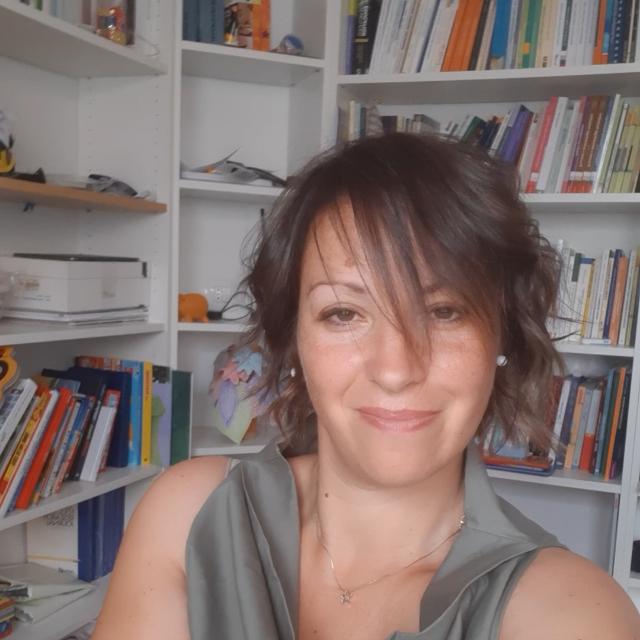
 045 8028383
045 8028383
